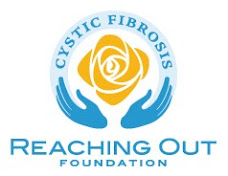

Cystic fibrosis: FAQs on the disease of '65 roses'
Last Updated: Thursday, November 27, 2008 |CBC News
Roses are a symbol for cystic fibrosis. Cystic fibrosis, or CF, is sometimes called 65 roses. The name came about after a boy overheard his mother talking about the condition on the phone and thought she said "65 roses." A single rose is often used as a symbol for the disease.
A child with cystic fibrosis may cough frequently and need to have a parent clap his or her back every morning to make it easier to breathe.
Cystic fibrosis is an inherited disease of the mucus and sweat glands. Unlike in healthy lungs, where mucus protects the airways, people with CF have mucus that becomes thick and sticky. When the substance builds up in the lungs, bacterial infections may occur.
Mucous-producing cells in the digestive system — including the pancreas, liver and intestines — and respiratory system are the major problem areas for people with CF.
What causes CF?
Jake Szatmary was sick and malnourished for the first three months of his life, before cystic fibrosis was diagnosed. (CBC)People with CF inherit two copies of an abnormal gene, one from each parent. Those with one copy are carriers who don't have the disease or show any symptoms but may pass it on to their children. About one in 25 Canadians carries a defective version of the gene responsible for CF, according to the Canadian Cystic Fibrosis Foundation.
Canadian researchers discovered the gene responsible for CF, called cystic fibrosis transmembrane conductance regulator, or CFTR, in 1989. More than 1,000 mutations of the gene have been associated with the disease.
Who is affected?
An estimated one in every 3,600 children born in Canada has CF. The severity of the disease varies, and both sexes are affected with a similar frequency.
The risk of being a carrier varies by ethnicity, according to HealthyOntario.com:
Ethnicity Carrier risk
Caucasian 1 in 25
Ashkenazi Jew 1 in 25
Hispanic 1 in 46
Black 1 in 65
The disease mainly affects Caucasians, which includes Europeans, Indians and people from the Middle East, said Nadine Imbleau Redman, a spokeswoman for the Canadian Cystic Fibrosis Foundation.
How is it diagnosed?
Doctors may suspect CF in babies who cough a lot and get many lung infections. A simple and painless collection of sweat is done, since people with CF have extremely salty sweat. Chest X-rays, sinus X-rays, lung function tests, analysis of sputum and stool and genetic tests on blood may also be done to help in the diagnosis. Prenatal genetic tests show if a fetus is likely to have CF.
What are the common symptoms?
Frequent coughing with phlegm.
Frequent infections such as bronchitis and pneumonia.
Salty-tasting skin.
Dehydration.
Excessive appetite with weight loss.
Bulky bowel movements.
Poor growth.
Infertility, mostly in men.
How is it treated?
The goal is to keep the lungs clear of mucus to avoid infection. Physical therapy, such as clapping on the chest and back, breathing exercises, wearing a positive pressure expiratory mask and drinking a lot of fluids helps to loosen mucus.
Pancreatic enzymes are taken with meals to aid digestion since mucus in the pancreas makes it difficult to digest food and absorb nutrients. A vitamin and mineral supplement may be needed for the same reason. Drugs that thin the mucus, reduce inflammation in the airways, and antibiotics, taken in pill, intravenous or inhaled form, may be prescribed, according to the U.S. National Heart Lung and Blood Institute.
Eating a healthy diet, avoiding tobacco smoke, exercising frequently, and frequent hand washing are also important.
How is daily life affected?
In 2006, for the first time, more than half of all Canadians with CF were 18 years or older, the Canadian Cystic Fibrosis Foundation said. Half of Canadians with CF are now expected to live into their late 30s or longer.
When lung disease limits daily life, then lung transplants may be an option.
In 2004, a 21-year-old woman with CF received a rare lung transplant from two living donors, her mother and aunt. Such transplants are complex since both donors and the recipient are at risk.
"The CF had clogged up my lungs," Jessie McQuitty of Edmonton said at the time. "I was unable to breathe, I was unable to work, unable to school, everything."
In 2008, Canadian researchers discovered a genetic variant that can increase the severity of lung deterioration in children with CF.
These patients "experience a vicious cycle of infection and inflammation that destroys lung tissue, inhibits lung function, and erodes quality of life," said Dr. Julian Zielenski, an associate scientist in the genetics and genome biology program at the Hospital for Sick Children and a lead author of the study.
People who have the variant produce less of a protein that defends against bacterial infections. The researchers hope to one day develop a genetic test that can predict the severity of a patient's lung disease.




No comments:
Post a Comment